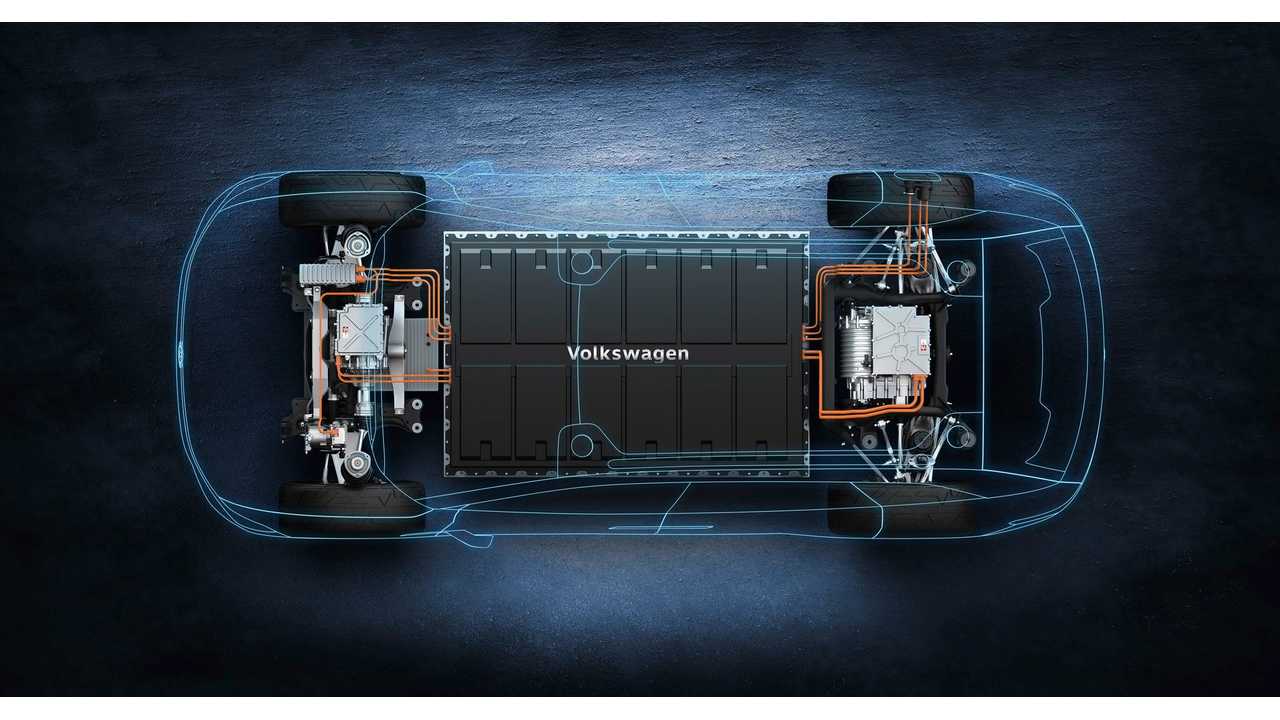Launching volume in-house production of core components like drive units and battery systems is proof of serious intentions.
Volkswagen Group Components, part of the Volkswagen Group, released an interesting presentation about core components and parts for the upcoming ID.3, which are produced in-house.
The company says that the production of pre-series MEB platform parts already started in several locations, from where they will be supplied to the Volkswagen plant in Zwickau, Germany where the ID.3 and derivatives will be produced.
The electric drive units are produced at the Kassel plant. Up to 500,000 drive units annually will be produced in the not-so-distant future in Kassel, while another plant in Tianjin, China will supply an additional 900,000 for a total of 1.4 million per year from 2023 onwards.
“The Group Components plant in Kassel supplies electric drives and platform parts for the ID.3. In addition to the dual clutch gearbox (DSG), for which Kassel has been known since the launch of production 16 years ago, the plant will chiefly be producing electric drives for the modular electric drive matrix (MEB). All parts for the electric drive are put together at the Kassel plant, including the parts from the component plants in Salzgitter, Poznań and Hanover.
Kassel produces the electric drives for all MEB vehicles in Europe and North America. Production of pre-series drives has already started; in future, up to 500,000 units will leave the factory each year. Kassel works closely with the Chinese plant in Tianjin where the electric drive is produced in parallel for the Chinese market. Together, the two plants will produce up to 1.4 million electric drives each year from 2023 onwards. This means that Volkswagen Group Components will be one of the largest global manufacturers of electric vehicle drives in the future.
In addition to the electric drive, load-bearing components and body parts are also produced in Kassel for the ID.3: parts of the extremely durable frame for the battery box, damper mounts, crossmembers and the tunnel. The platform parts from Kassel are then delivered to the Zwickau plant for assembly to complete the vehicle body.”
Rotor and stator for electric motors are supplied from Salzgitter: up to 2,000 per day.
“As part of the transformation to electric mobility, the Components plant in Salzgitter is specialised in manufacturing rotors and stators, two fundamental parts of an electric drive, in addition to conventional engine production. In future, up to 2,000 rotors and stators will be produced each day, along with petrol, diesel and CNG drives. In order to achieve these high volumes, a new hairpin technology is used to manufacture stators, a technology developed by Volkswagen. It enables improved performance figures in shorter production times.
Salzgitter also stands for the transformation process at Group Components: Volkswagen Group Components has assumed end-to-end responsibility at Volkswagen AG for the battery, starting with research and ending with the recycling process. The Salzgitter site has taken on key elements of these processes: battery expertise is being developed at the Center of Excellence (CoE) and a pilot plant for battery production will be opened by the end of the year. This will be followed by the pilot plant for recycling in 2020. Competence and industrial processes are to be developed at both pilot plants.”

The MEB battery systems are developed and will be produced in volume from Q4 2019 in the Brunswick plant. The planned capacity is also up to 2,000 per day.
“The battery system for the ID.3 will be manufactured at the site in Brunswick. A new hall the size of nine football pitches will be built especially for manufacturing the battery system, which looks rather like a chocolate bar. It is scheduled to open in the fourth quarter of 2019. In future, around 2,000 units will be produced per day and delivered to the vehicle production site in Zwickau. The Brunswick site has been steadily developing its battery expertise since 2013, in relation to both complete systems and production. The battery systems manufactured there include those for current electric and hybrid vehicles by the Volkswagen brand as well as trucks for Scania and MAN.
Many years of experience and expertise have also found their way into the most recent battery system for the MEB. MEB battery systems that have already been manufactured are currently undergoing several weeks of hardness testing, and are being put through their paces. The results will be incorporated into the further development.
The Brunswick site also manufactures running gear components and assembles front and rear axles. This includes welding groups and steering systems, but also drive shafts from the running gear production site in Wolfsburg.”

